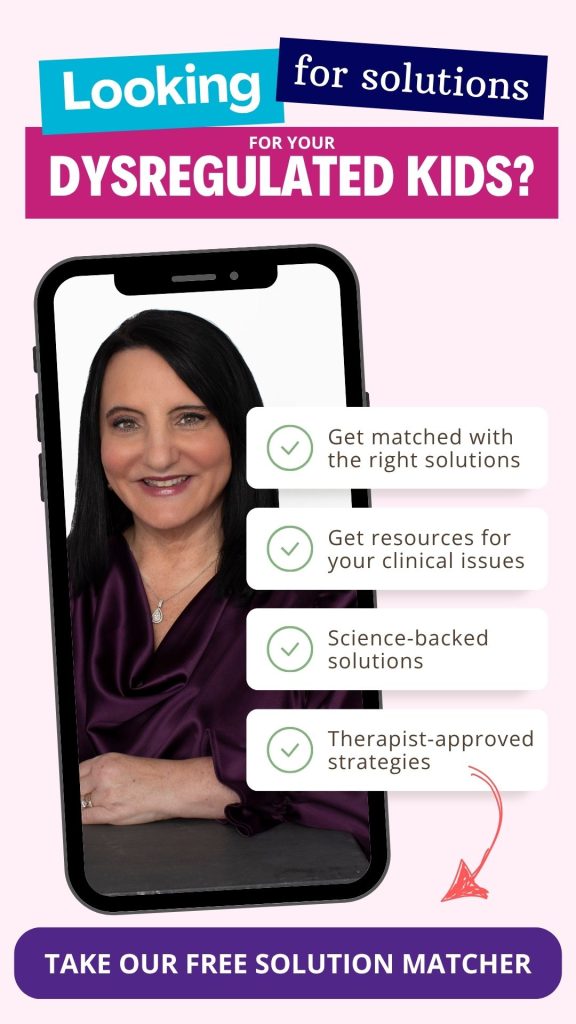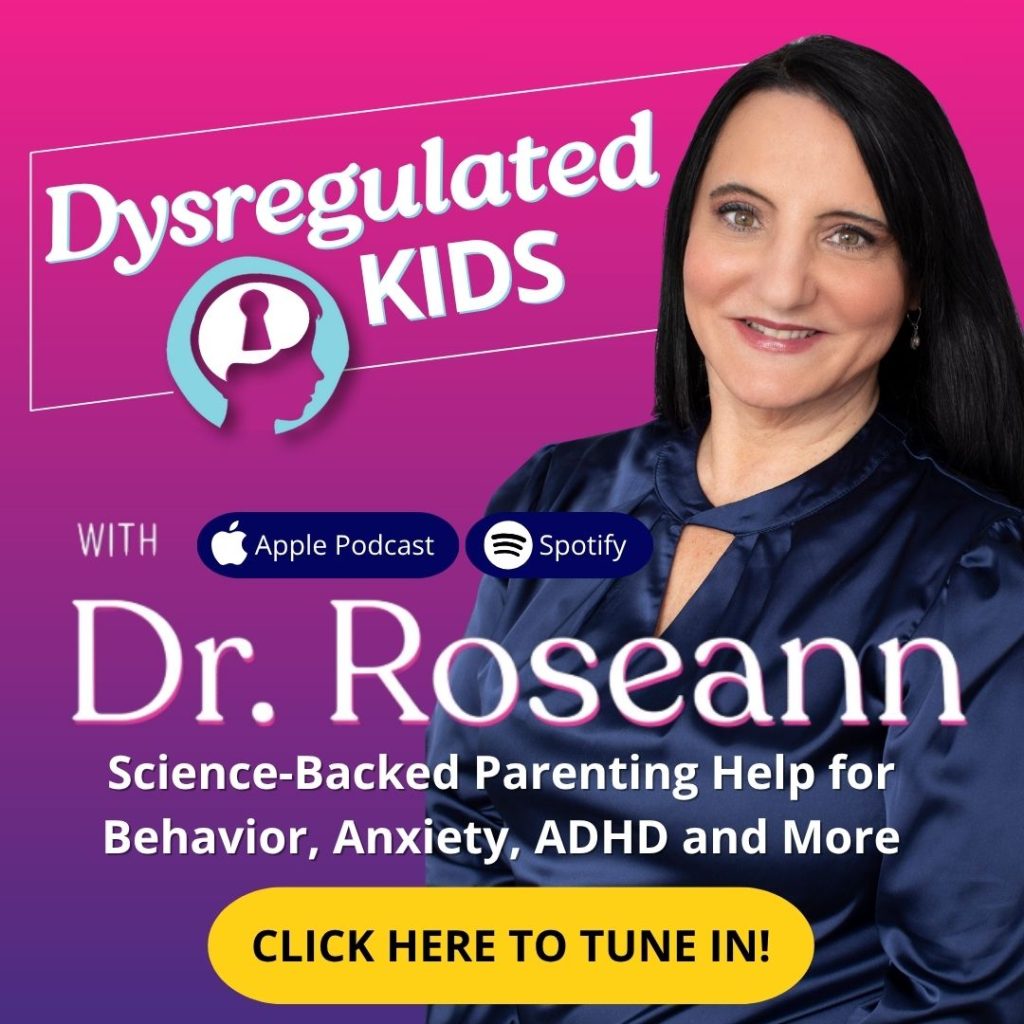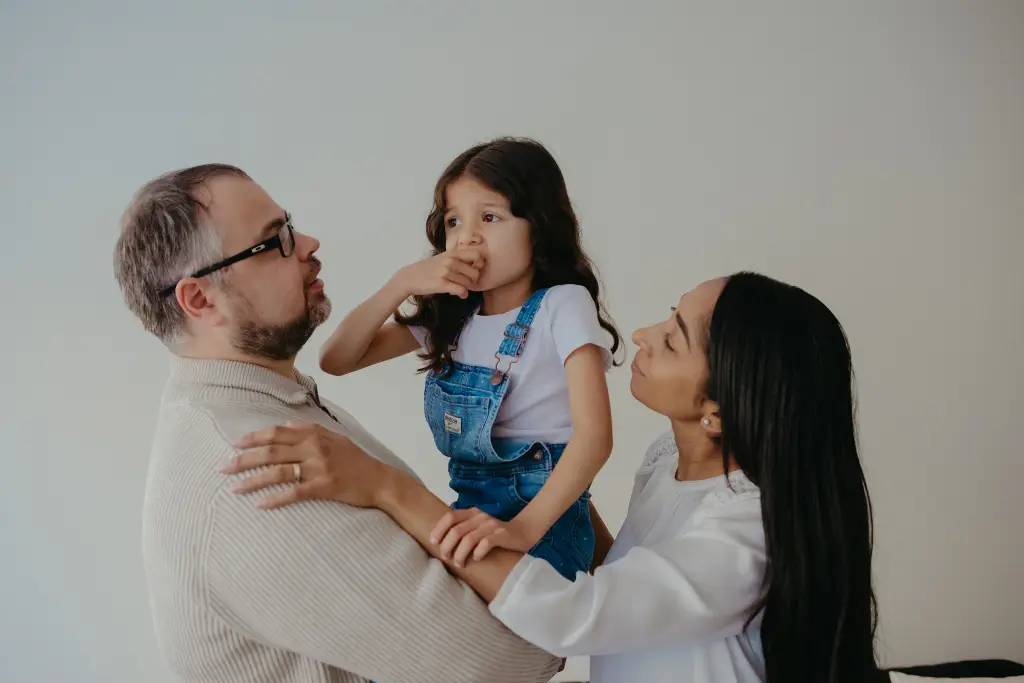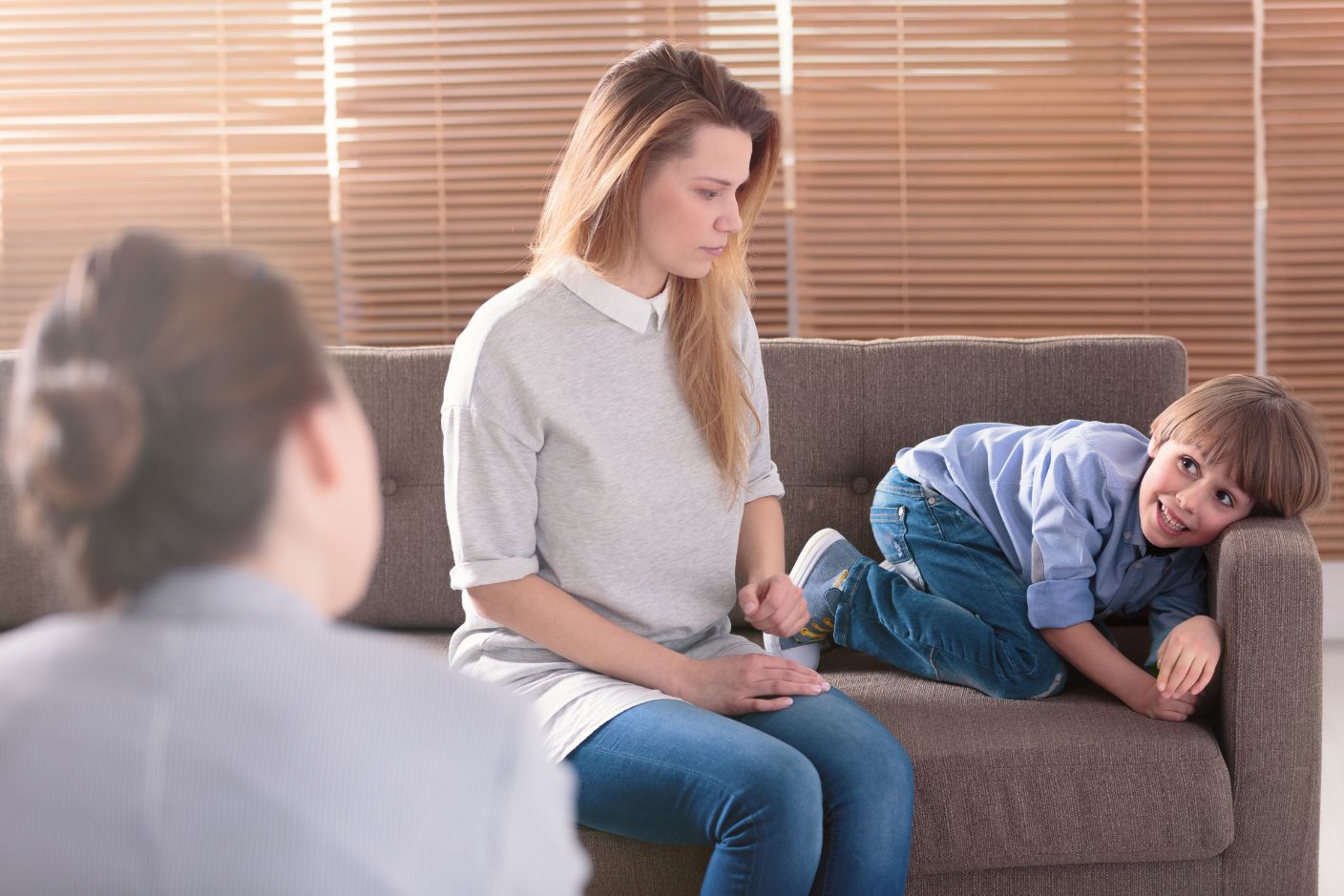
Estimated reading time: 8 minutes
One clear, science-backed guide—so you can stop guessing and start helping your child today.
If your child’s behavior feels out of control lately, you’re not alone. As a mom and clinical expert, I meet parents every day who wonder if it’s ADHD or just kid energy.
This guide explains how and when to use a ‘Does My Child Have ADHD?’ quiz and what good screening really looks like. It also shows how QEEG brain mapping and calming the nervous system can help your child thrive.
What you’ll learn:
- How ADHD shows up across ages,
- The role of screeners and ADHD rating scales,
- What a QEEG brain map can reveal
- Practical steps for home and school that work with a dysregulated brain (not against it).
What Is the “Does My Child Have ADHD?” Quiz
If your child’s behavior feels out of control lately, you’re not alone. Parents tell me daily, “I just need clarity.”
The ‘Does My Child Have ADHD?’ quiz is a reflection tool, not a diagnosis. It organizes what you see at home and school—focus, listening, task start/finish, stress tolerance, problem-solving, and big emotions.
How To Use It
Use it to:
- Notice patterns over 6–8 weeks (sleep, screens, nutrition, transitions).
- Compare how your child does in different settings (home, school, sports).
- Bring specific examples to your clinician so nothing gets missed.
Big idea:
Behavior is communication. The quiz helps you hear the message before you pick an intervention. Let’s calm the brain first.
“ADHD is a performance inconsistency, not a knowledge problem.” — Russell A. Barkley, PhD
Why Your Child Can’t Start or Finish Tasks
Many kids with ADHD struggle with initiation and follow-through. That’s executive function—the brain’s planning and prioritizing system. When the nervous system is stressed, the “go” signal is weak, and frustration rises.
What to look for:
- Needs high, moderate, or low support to plan/sequence tasks
- Gets stuck on getting started or staying focused
- Avoids tasks that feel long or unclear
Calm-first supports that help:
- Movement before thinking tasks (2–3 minutes of heavy work or outside steps)
- First–Then boards and one next step only
- Timers the child chooses; short work sprints with tiny wins
Parent Story:
Mara, mom of a sensitive 10-year-old, thought her son’s constant pushback was defiance. After tracking sleep and stress for a week, she saw that late nights were fueling morning meltdowns. An earlier lights-out and short movement breaks before homework made a bigger difference than any new strategy.
Takeaway: Regulate first; clarity follows.

Your Child Can’t Follow Directions: ADHD, Working Memory, or Overload?
The quiz asks whether your child needs multiple reminders or can follow 1-step vs. multi-step directions. That’s code for working memory load and processing speed—both common ADHD pain points (Willcutt, 2012).
How to decode it:
- Needs many reminders: likely overload or poor state regulation
- 1–2 step capacity: good start—chunk tasks with a visual
- Multi-step independence: keep it up; add previewing the next step
Try this:
- Say it, show it, then ask your child to teach it back in one sentence
- Use visual checklists with boxes that they physically mark
- Reduce repetitive busywork when fatigue hits
Parent Story:
Sandy, a mom of a 12-year-old, learned through the quiz that her daughter often needed several reminders to finish tasks. When Sandy replaced verbal instructions with simple visual checklists and added a quick ‘teach-back,’ her daughter started remembering on her own.
Takeaway:
Working memory likes pictures and brevity.
What Your Child’s Stress Tolerance Reveal About ADHD and the Nervous System
If the quiz shows “little tolerance for stress” or “needs adult help most of the time,” your child’s nervous system is telling us it feels unsafe. A dysregulated brain can’t focus, follow directions, or be flexible.
Regulate → Connect → Correct™
- Regulate: predictable routines, sensory-motor breaks, breath pacing
- Connect: reflect feelings first—“I see your brain is overwhelmed.”
- Correct: teach one small skill after calm (timer, checklist, single next step)
Behavioral and parent-training strategies improve ADHD outcomes (Daley et al., 2014).
Why Your Child Gets Emotional or Give Up During Problem-Solving
The quiz screens for “gets emotional,” “quits easily,” or “needs adult guidance.” Under stress, kids slip into fight/flight/freeze, which looks like anger, tears, or avoidance.
What helps right away:
- Co-regulation: Your calm becomes your child’s calm
- Two-option prompting: “Which do you want to do first—title or first sentence?”
- Micro-wins: 3-minute sprint → sticker or silly high five → repeat
“Executive functions are the brain’s management system—support them and tasks get easier.” — Thomas E. Brown, PhD

Are Emotions Like Worry, Anger, or Fear Connected to Attention Issues?
Yes. The quiz lists distracted, tearful, worried, angry, and afraid because these states pull attention offline. Anxiety can look like ADHD; both can co-occur.
Quick supports:
- Name-it-to-tame-it: “Worry showed up. Let’s take 4 box breaths.”
- Body first: wall push-ups, chair pulls, short walk
- Preview pains: “Math quiz after lunch. What’s our plan if your brain gets loud?”
“Emotional self-regulation is central to ADHD—and explains much of the impairment.” — Russell A. Barkley, PhD
What Changes by Age—And How Should Supports Look for Under-12 vs. Teens?
The quiz starts by asking under 12 or over 12 because ADHD shifts with development.
Under 12 (elementary):
- More movement, blurting, and short sitting stamina
- Supports: movement minutes, visual directions, first-then boards, token “work then break”
Teens (middle/high):
- Time blindness, late work, and heavier emotional load
- Supports: teen-picked planner + alarms, chunked deadlines, fewer repetitive tasks, short co-regulation chats

When to Share Quiz Results With a Clinician
Bring quiz notes when the function is impaired at home/school for 6+ months. Ask your clinician what ADHD screening they’ll use:
- Parent/teacher ADHD rating scales (across settings)
- Rule-outs for anxiety, sleep, and learning differences
- QEEG brain map to see patterns linked with attention and impulse control; many ADHD profiles show altered slow-wave/beta activity (Arns et al., 2013)
- Clear plan for behavioral supports and, when appropriate, neurofeedback for ADHD
Quiz Domains → What It Means → Calm-First Supports
Turning Insight Into Calm Action
The “Does My Child Have ADHD” quiz gives you something most parents crave—clarity. It’s not about labeling your child; it’s about recognizing the patterns that drive behavior.
When you understand what your child’s brain is trying to communicate, you can finally stop guessing and start helping in ways that actually work.
Your Calm-First Next Steps:
- Reflect on what you noticed. Track your child’s patterns for 6–8 weeks—look at sleep, stress, movement, and focus.
- Share your insights. Bring your notes to a clinician who considers the full picture—using ADHD rating scales, rule-outs, and, when appropriate, QEEG brain mapping.
- Start small at home and school. Try short movement breaks, visual checklists, timers, and daily co-regulation moments.
You don’t have to figure it all out alone. Grab The Natural ADHD Focus Formula Kit and help boost your child’s attention, focus, and school performance without medication!
FAQs
How accurate are online ADHD quizzes?
They’re screeners, not diagnoses. Use them to spot patterns and guide a full ADHD screening with rating scales across settings (Daley et al., 2014).
Can the quiz tell me if it’s ADHD or anxiety?
It can show overlapping patterns. Anxiety often looks like inattention. A clinician should rule out sleep issues, learning differences, and anxiety—sometimes alongside ADHD (Willcutt, 2012).
At what age can a child be screened?
Anytime a function is impacted. By ages 4–5, most kids can complete developmentally appropriate screening.
What school supports help without a fight?
Seat placement, short movement breaks, chunk-and-check work, timers/preview, and reduced repetitive tasks—all calm-first and teacher-friendly.
Terminology
- Executive function: The brain’s “manager” skills—start, plan, focus, shift, finish.
- Working memory: Holding info in mind while doing something.
- QEEG brain map: A 19-site EEG compared to age norms to guide regulation-first care.
- Co-regulation: Your calm nervous system helps your child’s brain settle.
- Neurofeedback: EEG-guided training that helps the brain practice more regulated patterns.
Citations
Arns, M., Conners, C. K., & Kraemer, H. C. (2013). A decade of EEG theta/beta ratio in ADHD: A meta-analysis. Clinical Neurophysiology, 124(2), 218–227. https://doi.org/10.1016/j.clinph.2012.09.012
Daley, D., Van der Oord, S., Ferrin, M., et al. (2014). Behavioral interventions in ADHD: A meta-analysis of randomized controlled trials. American Journal of Psychiatry, 171(11), 1162–1174. https://doi.org/10.1176/appi.ajp.2014.13121635
Willcutt, E. G. (2012). The prevalence of DSM-IV attention-deficit/hyperactivity disorder: A meta-analytic review. Journal of Abnormal Psychology, 121(1), 1–17. https://doi.org/10.1037/a0028312
Always remember... “Calm Brain, Happy Family™”
Disclaimer: This article is not intended to give health advice, and it is recommended to consult with a physician before beginning any new wellness regimen. The effectiveness of diagnosis and treatment varies by patient and condition. Dr. Roseann Capanna-Hodge, LLC, does not guarantee specific results.
Are you looking for SOLUTIONS for your struggling child or teen?
Dr. Roseann and her team are all about science-backed solutions, so you are in the right place!

©Roseann Capanna-Hodge

%20.png)















